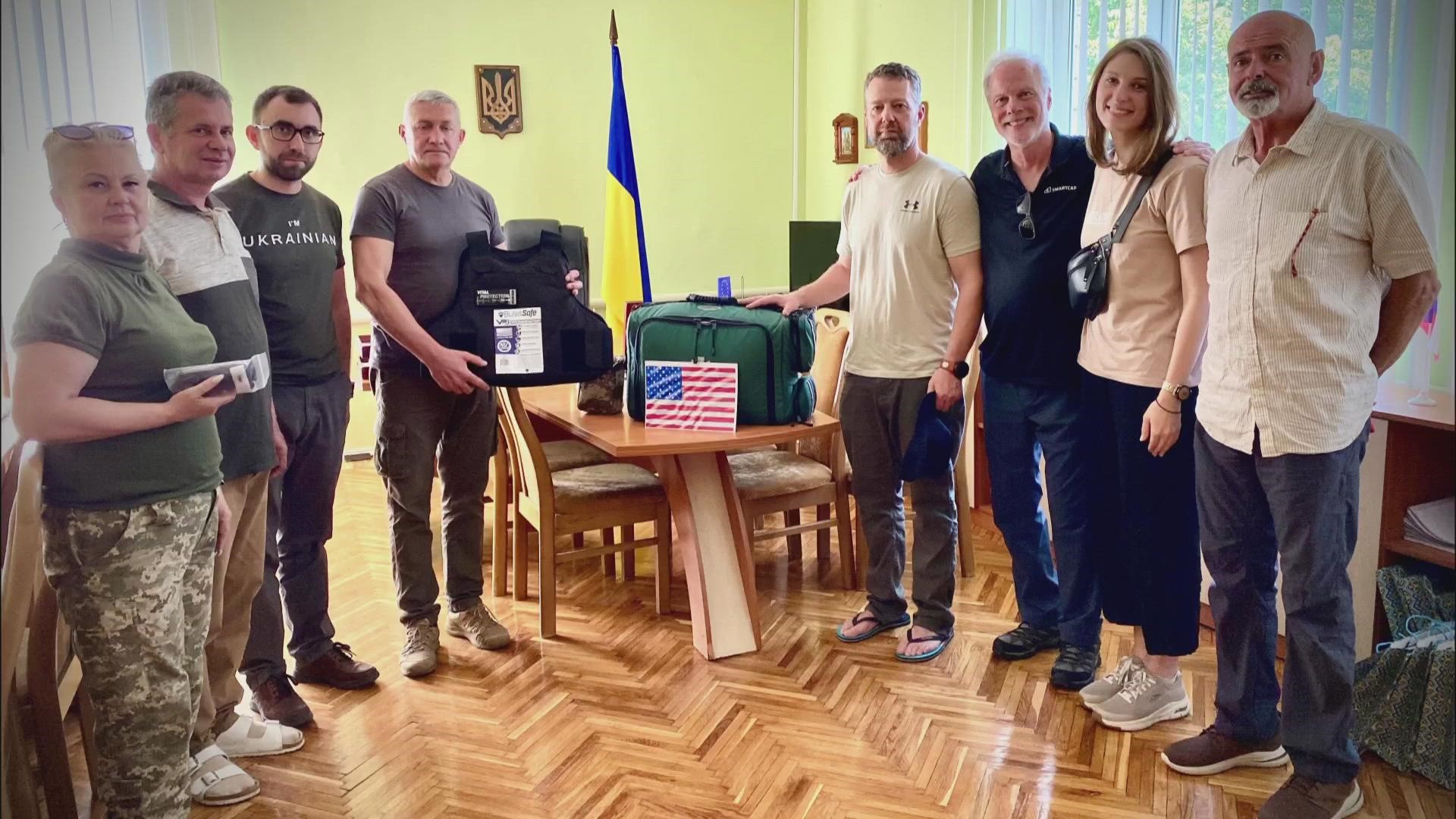SEATTLE — Friday marked one year since Russia invaded Ukraine and it’s causing a huge psychological toll on the people there.
A team of mental health workers in Washington state is training Ukrainian community leaders on how to treat the unseen wounds of war.
“I’m 29 years old and I never thought I’d see evil to that scale in my life,” Igor Skripnichenko said.
For the past year, Skripnichenko, a chaplain in Ukraine has seen and heard of some of the more than 70,000 war crimes against Ukrainian civilians during Russia's invasion.
It’s a war that’s been going on for years and for some, it’s their only known memory.
"My daughter is eight years old," Skripnichenko said. "She has not lived a single day in the country without war."
While 30 chaplains in his seminary are on the front lines of Russia's invasion, he is now fighting the unseen wounds of war. Skripnichenko is in Seattle learning from professors at Seattle Pacific University and taking back trauma training and psychological first aid training that can save lives.
“Living through evil we think how we can renew Ukraine and this gives us hope,” Skripnichenko said.
Dr. Jeff Holguin is a front-line mental health worker who has been to Ukraine twice to help train community leaders there in anticipation of an overwhelming need for trauma treatment.
“Once you are hyper-vigilant for so long, your body can only keep that up for a limited amount of time, and start to become depressed and hopeless and feel like a burden on your family," Holguin said. "And now we're really worried about stuff like suicide, isolation."
Four area psychologists were invited by the Consulate of Ukraine in Seattle to train community leaders including educators, teachers, church leaders, and medical and military personnel. A book set to be a road map for healing is in the works and 800 people have gone through the training which will likely spread.
“It's a trainer-to-trainer model," Holguin said. "We go there to train people to train other people and let the indigenous population care for themselves."
Holguin spent more than a decade in the military with search and rescue. He said the work in Ukraine has been life-changing.
“From the South Pacific to Ukraine now and all over the world, there are very few countries that I’ve seen who are more resilient than Ukraine," Holguin said. "I don't want to lose the juxtaposition of the amazing beauty and artistry that is Ukraine. And they're fighting for their lives. And we can't relate to that."
While the war is not over, Ukrainians have one takeaway message.
“We just want them to leave our country," said Valeriy Goloborodko, honorary consul of Ukraine in Seattle. "Stop terrorizing us and stop killing us and stop committing genocide because what they are doing."
“I am one of many Ukrainians that would like to live peacefully, righteously and wisely,” Skripnichenko said.

